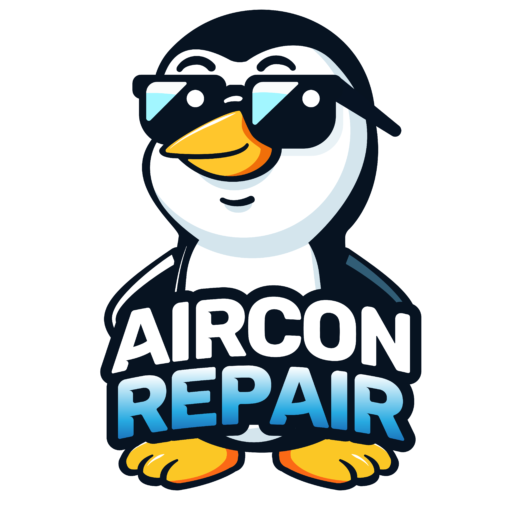Air conditioners play a vital role in keeping your indoor environment comfortable and healthy by regulating temperature, humidity, and air quality. By understanding how an air conditioner functions, you can better appreciate the importance of maintenance and make informed decisions about your cooling system. In this guide, we’ll explore the inner workings of an air conditioner and discuss why regular servicing is essential.
The Cooling Secrets of Air Conditioners
Air conditioners operate through a continuous cycle of air intake, filtration, cooling, dehumidification, and redistribution. Below is a step-by-step breakdown of this process:
1. Air Intake and Filtration
The air conditioner begins by pulling in air from the room through return ducts. These ducts serve as entry points for the air, which then passes through high-quality filters. The filters play a critical role in:
- Trapping Particles: Dust, pollen, pet dander, and other airborne contaminants are removed, enhancing indoor air quality.
- Protecting the System: Filters prevent debris from clogging the system, ensuring efficient operation.
A clean filter not only improves air quality but also optimizes the efficiency of your air conditioner. Make it a habit to check and replace filters every 1-3 months, depending on usage and manufacturer recommendations.
2. Cooling and Dehumidification
Once the air is filtered, it flows over the evaporator coils. Here’s what happens during this stage:
- Heat Absorption: The evaporator coils contain a refrigerant that absorbs heat from the air, cooling it in the process.
- Humidity Reduction: Excess moisture in the air condenses on the cold evaporator coils, effectively lowering humidity levels. The collected water is drained away from the system.
This dual process of cooling and dehumidification creates a comfortable and balanced indoor environment, which is particularly important in humid climates like Florida.
3. Exhaust of Warm Air
The heat absorbed by the refrigerant needs to be expelled to maintain the cooling process. This is achieved as follows:
- The refrigerant carries the absorbed heat to the condenser unit located outside the building.
- The condenser unit releases the heat into the outdoor air, ensuring it doesn’t re-enter your home.
Proper ventilation around the outdoor unit is crucial to ensure efficient heat dissipation. Keep the area around the condenser free from debris and ensure it has adequate airflow.
4. Air Redistribution
After cooling and dehumidification, the conditioned air is blown back into the room through supply vents. This process ensures:
- Even Temperature Distribution: The entire space maintains a consistent and comfortable temperature.
- Improved Air Circulation: Freshly conditioned air replaces stale indoor air, promoting a healthier environment.
The cycle repeats continuously, allowing your air conditioner to maintain an optimal indoor climate.
Why Regular Air Conditioner Servicing Matters
Routine maintenance is essential for keeping your air conditioner in top shape. Neglecting maintenance can lead to reduced performance, higher energy costs, and costly repairs. Here are the key benefits of regular servicing:
1. Enhanced Efficiency
Dust and debris can accumulate in your air conditioner’s filters, coils, and ducts, forcing the system to work harder. Regular cleaning and inspections by an HVAC technician ensure your system runs efficiently, reducing energy consumption and lowering your utility bills.
2. Prolonged Lifespan
Air conditioners are a significant investment, and you want yours to last as long as possible. Routine maintenance, including checking refrigerant levels, tightening electrical connections, and cleaning components, prevents wear and tear, extending the life of your system.
3. Prevention of Breakdowns
Unexpected breakdowns can be inconvenient and costly. Regular servicing helps identify and address minor issues before they escalate into major problems, saving you time, money, and frustration.
4. Improved Air Quality
Clean filters and coils mean cleaner air circulating in your home. This is especially important for households with allergies or respiratory issues, as well-maintained air conditioners reduce airborne allergens and pollutants.
5. Optimal Cooling Performance
A well-maintained air conditioner ensures your home stays cool and comfortable, even during the hottest months. Regular servicing prevents issues like insufficient cooling, uneven temperatures, or excessive humidity.
Additional Tips for Air Conditioner Maintenance
To maximize the performance and longevity of your air conditioner, consider the following tips:
1. Schedule Professional Maintenance
Hire a licensed HVAC technician for a thorough inspection and servicing at least once a year, preferably before the cooling season begins. This ensures your system is ready to handle peak usage.
2. Clean or Replace Filters Regularly
Dirty filters can restrict airflow and reduce efficiency. Check your filters monthly and replace them as needed to maintain optimal performance.
3. Inspect Outdoor Units
Keep the area around your outdoor condenser unit clean and free from obstructions. Remove leaves, grass, and debris, and ensure the unit has at least two feet of clearance on all sides.
4. Monitor Refrigerant Levels
Low refrigerant levels can compromise cooling efficiency. If you notice a decline in performance, have a technician check and refill the refrigerant as needed.
5. Seal and Insulate Ducts
Leaky or poorly insulated ducts can lead to energy loss and uneven cooling. Inspect your ductwork for leaks and seal them to ensure efficient airflow.
Conclusion
Your air conditioner is a critical component of your home’s comfort and functionality. By understanding how it works and prioritizing regular maintenance, you can enjoy a cool, comfortable, and healthy indoor environment year-round. Don’t overlook the importance of professional servicing to keep your air conditioner running efficiently and reliably.
Whether you’re looking to improve your air conditioner’s performance or extend its lifespan, these insights will help you achieve optimal results. Remember, a little effort goes a long way in ensuring your cooling system operates at its best, saving you money and enhancing your home’s comfort in the process.
